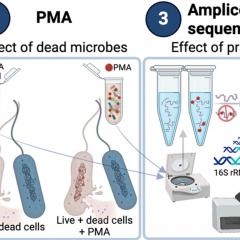
ACWEB Interim Director
ACWEB has seen a number of significant milestones in the last year.
A key change is the retirement of Professor Zhiguo Yuan AM as Centre Director, and my appointment as interim director in July this year.
Zhiguo has led the centre since 2015 and led major initiatives in the period, including a Laureate fellowship in methane fed biotechnology, having developed the high impact sewer research area, and (with Prof. Jurg Keller), led UQ’s participation in the CRC for Water Sensitive Cities.
As Director, Zhiguo mentored many researchers to leadership positions in the Centre, in the wider UQ Community, and nationally and internationally.
Zhiguo is planning to retain an honorary position at UQ and will continue to participate at an advisory level in projects, and in collaborating with PhD students.
Finally, I am happy to congratulate Zhiguo on achieving status as Clarivate Highly Cited Researcher for 2022, in the cross-field category.
Late 2021 saw a change in name from Australian Water Management Centre to Australian Centre for Water and Environmental Biotechnology.
This recognises our increasing role in the emerging field of Environmental Biotechnology, which sustains the natural environment, and utilises natural biology to enhance society and its relationship with the environment.
While the name change is recent, we have over 20 years of experience in this area, and strong links with agricultural, manufacturing, and waste sectors.
UQ is the only University in Australia with capability in this area according to the formal Excellence in Research Australia (ERA), with a rank of 5 (well above world standard), and ACWEB is a major contributor to this ranking.
ACWEB continues to contribute strongly to discoveries across water and environmental biotechnology, with 128 Scopus indexed journal publications, in collaboration with researchers and practitioners from 22 countries.
This includes a publication in Nature Communications identifying a novel propane oxidising organism, utilising nitrate as electron acceptor by Mengxiong Wu and co-authors, within Professor Jianhua Guo’s research group.
This research is essential to understand removal of alkanes in natural and engineered environments.
Research support has continued in 2022, with award of a $2M ARC-Linkage on Digitalisation of Sewer systems, an ARC Discovery Project on nitrogen transformation led by Professor Guo, and award of a UQ led $4.5M ARC Training Centre on Antimicrobial Resistance.
We have continued to achieve strong PhD graduate numbers, with 15 conferrals in 2022, and another 9 PhD students having submitted their thesis and currently under examination.
We congratulate these students in achieving this outcome despite the difficulties imposed by COVID restrictions over the last 3 years.
These achievements are highlighted by a number of student awards from national and international bodies.
Apart from these student awards, ACWEB and industry partners have achieved strong performance, receiving awards in the areas of research innovation, teaching, and industrial partnerships.
Our flagship coursework programme, Master of Urban Water Engineering has been established for 4 years, and we congratulate the most recent cohort of graduates.
We continue to expand our range of offerings, for both recent graduates and established professionals, offering industry relevant and targeted programmes.
This links to our continuing professional development programme IWES, which is Australia’s largest and most successful continuing education program for environmental professionals.
Following two years of online only offerings, we were ecstatic to greet 136 participants across 9 courses in July 2022 on the Gold Coast for an in-person event.
We look forward to offering both on-line and in-person events in 2023, including our flagship Gold Coast programme.
The current rapid societal, industrial, and environmental changes are generating new challenges for both people, and organisations.
We recognise our role in responding to these challenges and are leveraging our expertise from over 20 years of world class multidisciplinary research.
We thank you for your constructive feedback over the last year, and encourage you to engage and help develop our strategy to continue to generate high impact outcomes.
Professor Damien Batstone



